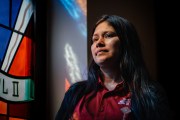Photos and additional reporting from Milwaukee by Jamie Kelter Davis.
Yessenia Ruano’s home in Milwaukee is in a state of limbo. Some of the family’s belongings have been sold. Some were gifted, out of necessity, to friends and family, including plants Ruano offered to her coworkers. The most essential — clothing, her daughters’ American birth certificates — were packed into suitcases.
Ruano’s husband, Miguel, is now contending with the rest: two cars in their driveway waiting to be sold, travel documents for their dog, boxes with additional household items he promised to pack up and ship before he, too, departs for El Salvador in a few weeks.
In May, The 19th wrote about Ruano’s fight to remain in the country despite a pending order of deportation. Ruano, a teacher’s aide at a local public school and the mother of twin daughters who are U.S. citizens, argued that her deep roots in her community and her pending application for a visa should at the very least buy her more time.
Ruano was among the millions of immigrants living in the United States who lack permanent authorization. They now face the Trump administration’s intensifying efforts to drive up the number of immigrants deported or otherwise removed from the country. That includes many immigrants who, like Ruano, have been in the country for a decade or longer, who have no criminal record, and whose ties to the country include young children — some of them U.S. citizens — and also careers and community.
-
Part One:
Before her first check-in with Immigration and Customs Enforcement (ICE) following Trump’s inauguration, Ruano decided to make her struggle public, summoning the help of her local community to avoid deportation. A petition in her support gathered 2,800 signatures within its first 24 hours, and a fundraiser for the family had raised close to $16,000 as of this week, with the average donation hovering under $60.
The Trump administration’s message has been that the focus of its efforts is on people who have committed crimes and pose a threat to public safety. In order to reach their ambitious deportation goals, immigration officials have also targeted immigrants who are among the easiest to locate and remove: people like Ruano, who regularly attend check-ins with ICE.
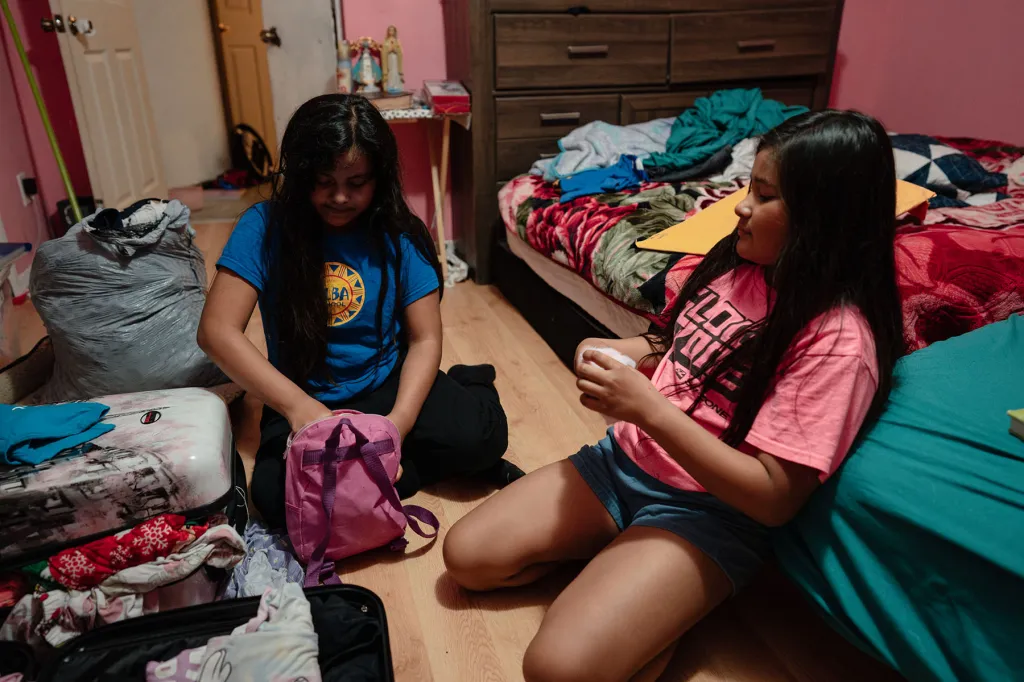
As of last month, Ruano had attended 19 in-person check-ins with ICE over her 14 years in the United States, in addition to logging dozens of virtual check-ins and for a time, submitting to 24-hour monitoring.
Ruano appeared for her last check-in at the end of May, holding a much-awaited “receipt number” from the U.S. Citizenship and Immigration Services agency showing that her visa application for victims of human trafficking was being processed. Before Trump, such an application would have likely paused deportation proceedings. Instead, Ruano was told she was expected to depart the country within days and given instructions for how to confirm she had arrived in El Salvador through ICE’s monitoring app. Failure to do so could lead to her immediate detention.
Ruano and her daughters, Eli and Paola, 10, boarded a United Airlines flight scheduled to leave Milwaukee’s Mitchell International Airport on June 17 at 11:35 a.m. local time. The girls’ first time on an airplane was with a one-way ticket out of their first and only home.
Ruano, who by the time of her departure had captured the attention of many people in Milwaukee and elsewhere in the country, spoke to news cameras and a group of supporters in the hall of the airport. She pleaded for a fix to the nation’s immigration system for herself and millions of immigrants in a similar situation.
“For the good of the United States, given this ongoing chaos, our political parties need to have serious conversations about our immigration system — and stop treating it like political soccer,” Ruano said.
As Ruano started to speak, she was interrupted by an automated message from the mayor that rang over the intercom, reminding travelers that in Milwaukee, “there’s so many opportunities to live, work and have fun.”
Ruano continued, thanking her school community and her broader community in Milwaukee for their support.
“To my immigrant community, I want to say that we cannot live in fear. We need to keep working for our children’s futures. … Our love and our togetherness is what will get us through.”
Ruano exchanged hugs with many of the people gathered: relatives, colleagues, supporters. Then, she joined her daughters to go through airport security.
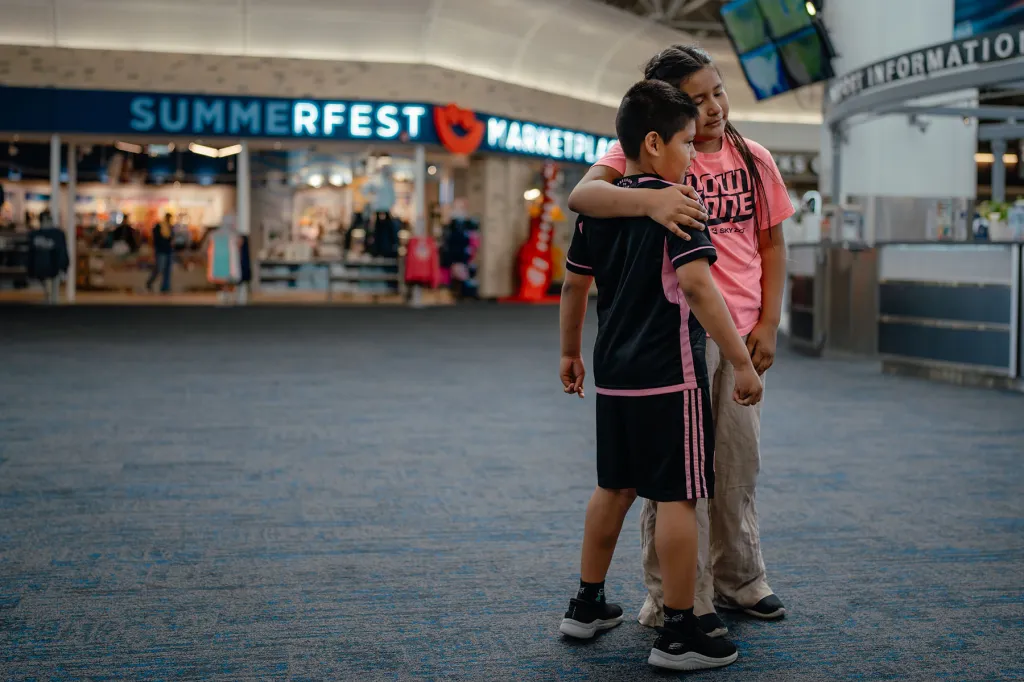
Hours before their scheduled flight, Ruano said that the girls were experiencing a convoluted mix of emotions. They vacillated between afraid and sad, and somewhat excited, “as if they were going on vacation.” Ruano chalked it up to their age and the fact that the flight coincided with the end of the school year and the start of summer.
At the terminal, Ruano sat between her two daughters, chatting and sending messages to loved ones until it was time to board.
The family’s departure bore a hole in the community they had built in Milwaukee.
With most of their relatives in El Salvador, Miguel, Yessenia and their twin girls came to lean on his sister and her family, who in turn, leaned on them. They would trade rides to school, handiwork around their homes when something broke and child care — all of the normal beats of extended families.
“We were there for each other for anything the other needed, a tool, a favor,” Miguel said. “It was just the two of us.”
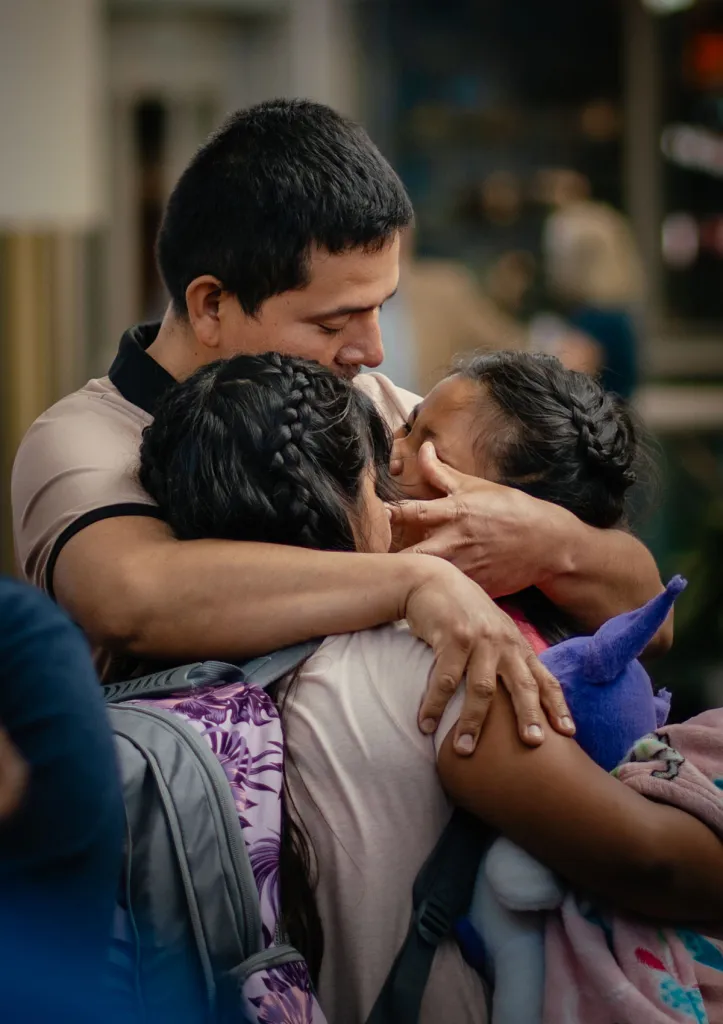
(Jamie Kelter Davis for The 19th)
Days before Ruano and the girls boarded their flight, the family got together for what was supposed to be a 10th birthday celebration for the twins. It was the last occasion they got to mark together, and with Ruano’s departure imminent, the focus shifted in part to goodbyes.
Miguel said he and his sister will continue to lean on each other during his final days in the United States. Her close circle of support will be permanently altered once he leaves.
Arriving home from the airport without his family to an empty house, Miguel said, was one of the hardest moments of his life.
“It’s an ugly feeling. I’ve never been alone without them,” Miguel said.

Before he joins them later in the summer, Miguel is packing up boxes to ship to El Salvador. Each box costs $450 to ship. Some boxes hold his tools. Others hold extra clothes and shoes for his daughters, along with some of their toys and trinkets. Miguel is packing pots, pans and other kitchen items for Ruano, “so she can feel like she has her things, like she’s home.”
The first box to be packed and ready is covered in a criss-cross of duct tape. “One of three boxes holding 14 years of dreams and hard work,” Miguel said. “Sometimes I think this was all just a nice dream that now we have to wake up from, but it’s not fair, not for my girls.”
The heart of Ruano’s support was her school community at ALBA School, a bilingual public school in Milwaukee known in Spanish as Academia de Lenguaje y Bellas Artes. Sarah Weintraub, a middle school teacher at ALBA, said she became invested in Ruano’s plight, and in the lead up to Ruano’s February appointment with ICE, began rallying community support from organizations like the local teachers’ union.
Weintraub and Ruano had worked together over the years and connected over the looming threats and challenges facing immigrants in the United States. Weintraub said she has loved ones in a similar situation. Weintraub’s daughter also attends ALBA and bonded with Ruano even though she was never her student.
Weintraub described ALBA as “a very tight-knit school.” Ruano’s absence will be sorely felt.
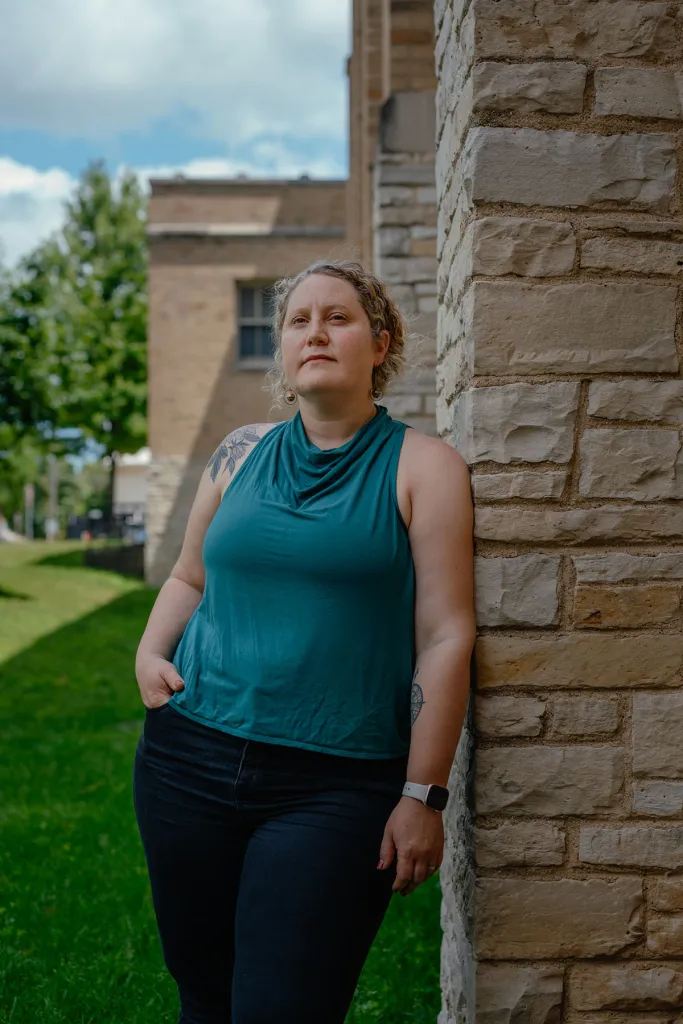
“Many of us have our own kids at the school. I have my kids there. Her kids are there. So, much of the staff is just very close in general,” Weintraub said. “My daughter loves her so much and has never been in any of her classes, just knows her from the school and the cafeteria.”
Weintraub said Ruano’s absence is a significant loss for the school as a workplace.
“Right now, it’s summer break, so we’re not in our usual routine. But I know already, just thinking about going back and her not being there will be — her absence will be very felt.”
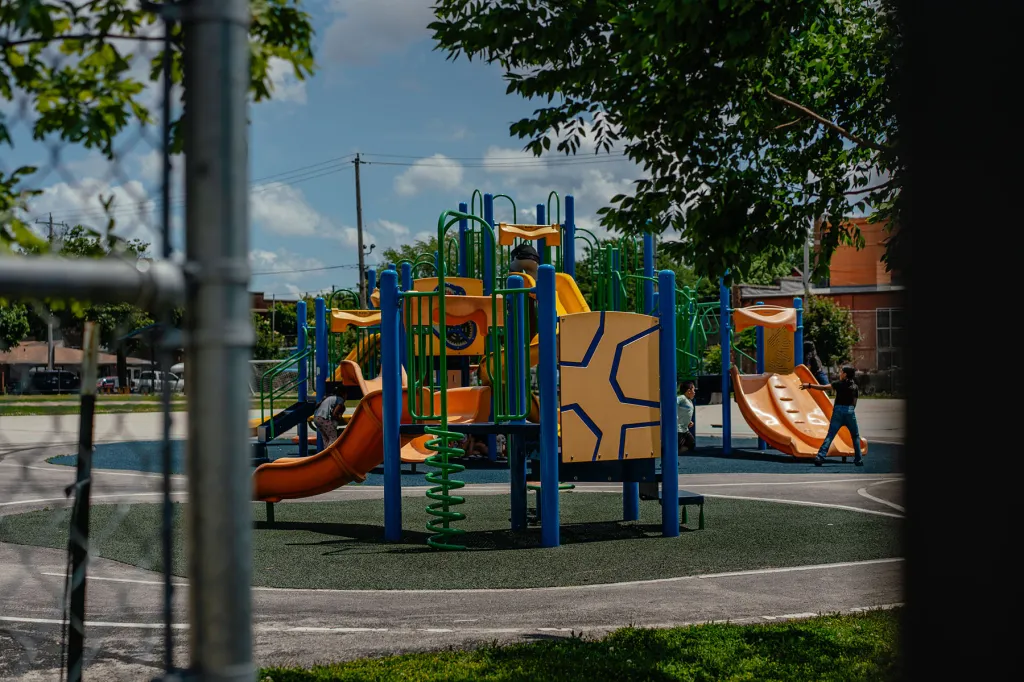
Ruano, she said, was the type of colleague who “jumps in right away” when there’s a need, and “you don’t just find the energy every day.” The school district, like the rest of the country, is struggling with a shortage of teachers — especially bilingual educators. “I don’t even know if her position will be filled right away,” Weintraub said.
Voces de la Frontera, an immigrant advocacy group, worked closely with Ruano and her colleagues at ALBA to elevate Ruano’s story as they worked to avert her deportation. Through events, news releases and outreach to elected officials, her story reached many people who didn’t know her, but saw themselves in her situation.
For Milwaukee’s immigrant community, Ruano’s departure brought home the reality of life under the new administration, said Christine Neumann-Ortiz, co-founder and executive director of Voces de la Frontera. “It definitely highlights that we’re in a new time,” she said, adding that there’s a “cruelty” and “senselessness” to the way the administration is handling immigration enforcement.

For the members of Voces de la Frontera, Neumann-Ortiz said, “there’s a feeling of sadness because it’s not what people want, or fought for.” During a meeting following Ruano’s departure, many members said they wanted to find ways to stay in touch with immigrants who are removed and deported, including Ruano.
Ruano also left behind her church community at Nuestra Señora de la Paz, where she was an active member of the prayer group and a mentor for a group of children preparing for their First Communion.
Blanca Cisneros, 70, said Ruano was a constant presence at the church’s community activities, always willing to volunteer when help was needed. “She’s really special: she’s both really humble and really strong,” Cisneros said. “Her situation just breaks my heart. It will be a big loss for our group because she has a strong desire to serve.”
On Monday, Ruano woke up early to help her sister prepare grains of corn for milling, setting a large pot over a wood fire on the patio that was still glowing red hours later. In a video call from a rural community in Comasagua, El Salvador, where they’re living, Ruano said her family is slowly adjusting to their new life.
Ruano and her daughters were reunited with her mom, a grandmother whom the girls had only met through video calls. They’re also spending time with aunts, uncles and cousins; Ruano’s sister lives next door, and they take turns cooking for the entire family. There are no playgrounds or parks nearby, and shopping options are very limited. But recently, Ruano took the girls on a hike near the vast mountain range she grew up calling home. They picked guavas right from tree branches, a highlight of the last few weeks for the girls, and, Ruano said, “a lesson in living more with Mother Nature and less with things that are artificial.”
In many ways, the adjustment has been hard for all of them.
Ruano says she feels blessed to have been able to purchase a small, modest home for her mother last year, a home with a bright blue door that they now all share. But the roof leaks when it rains — which is nearly every day — so at night, Ruano and her girls move their bed from one end of their room to another to avoid the largest drips. They have to walk across the yard at night to use the nearest bathroom, which Ruano says no one has gotten used to.
“They got here happy, telling me they were relieved I wouldn’t be sad anymore and that we were all together,” Ruano said. “But after a few days, seeing how life is — it’s nothing like Milwaukee — they started to cry. And that breaks my heart.”
As for Ruano, a huge weight was lifted off her shoulders as soon as she boarded their plane out of Milwaukee, having shed the worry of being detained by ICE.
“I traded one burden for another,” she said.
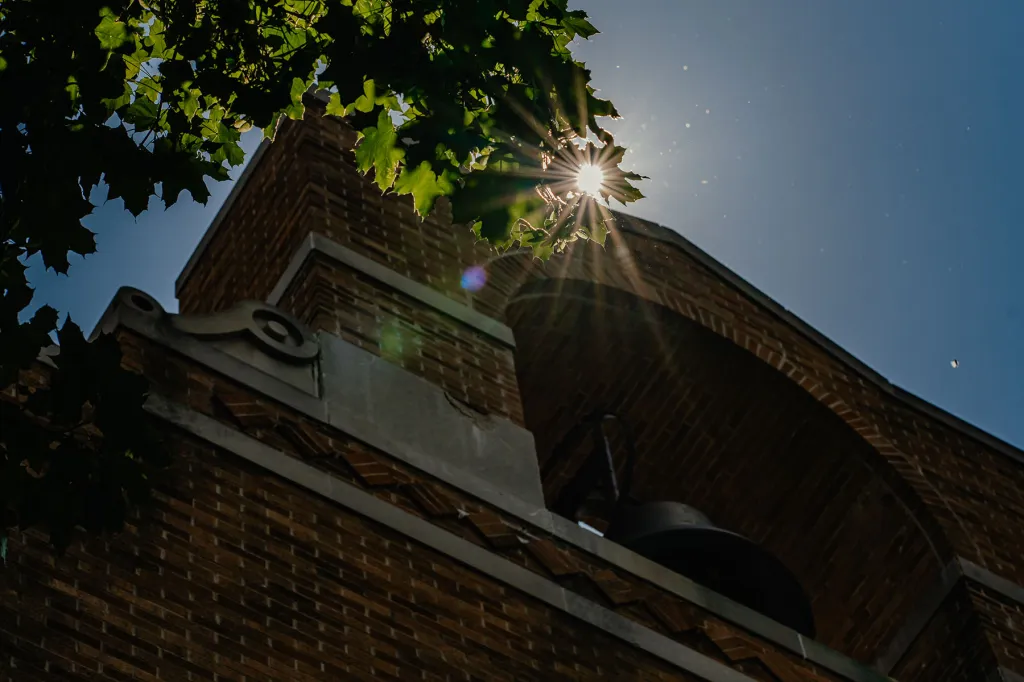
Now, she and Miguel have some difficult decisions to make: where to send the girls to school, how to find gainful work. “I’ve already felt that feeling again that I felt when I was young, the feeling of wanting to flee,” Ruano added.
In a video recorded shortly after taking off in Milwaukee, one of Ruano’s daughters says in the background, “Las casas parecen casas de muñecas” — the houses look just like doll houses — while the camera points to the city’s skyline.
“Adiós, Milwaukee,” Ruano then says, popping into the frame. “Es mi segunda casa, donde vine a madurar, donde vine a aprender más, a realizar mis sueños económicos y familiares.”
Goodbye, Milwaukee. This is my second home, where I came to mature, to learn, to realize my dreams financially and for my family.
Feeling overwhelmed by the news? The 19th is considering new ways to keep you informed. But we need your input. Fill out this quick survey to share your thoughts.




